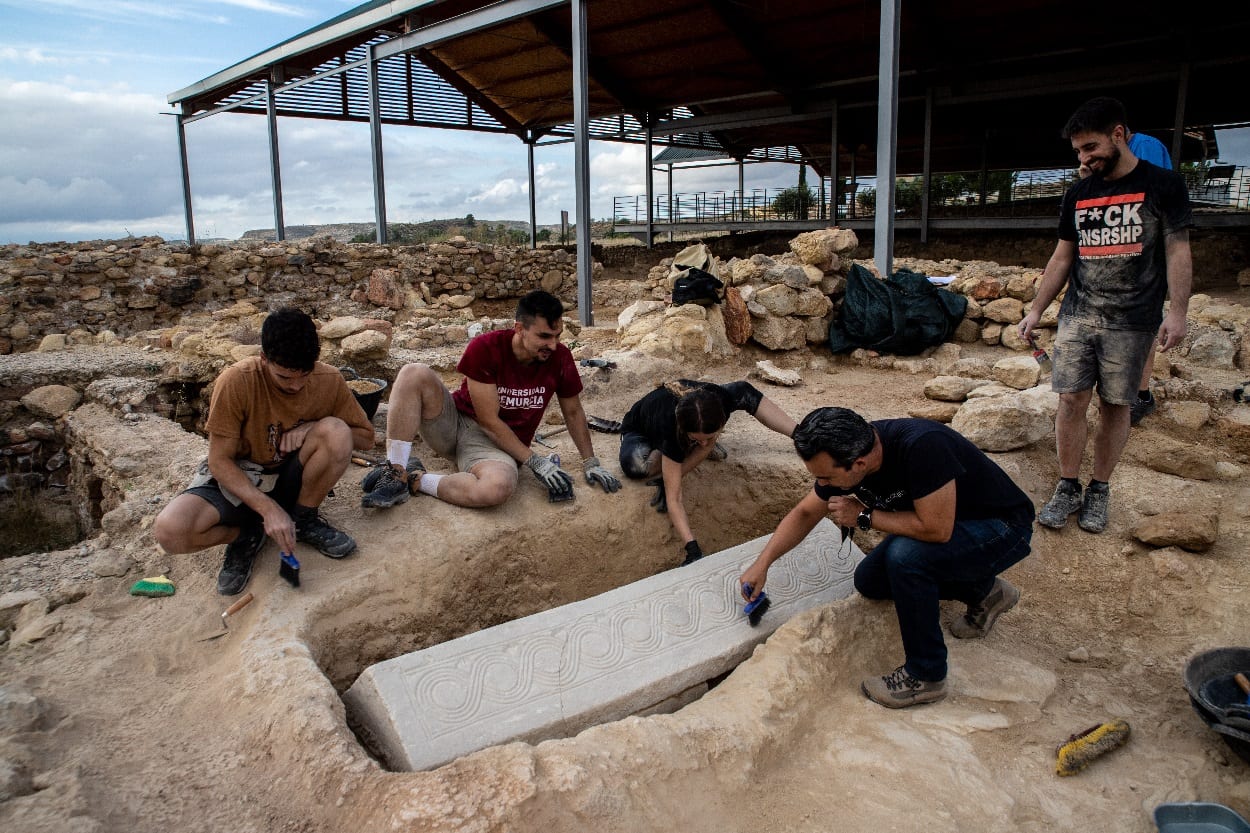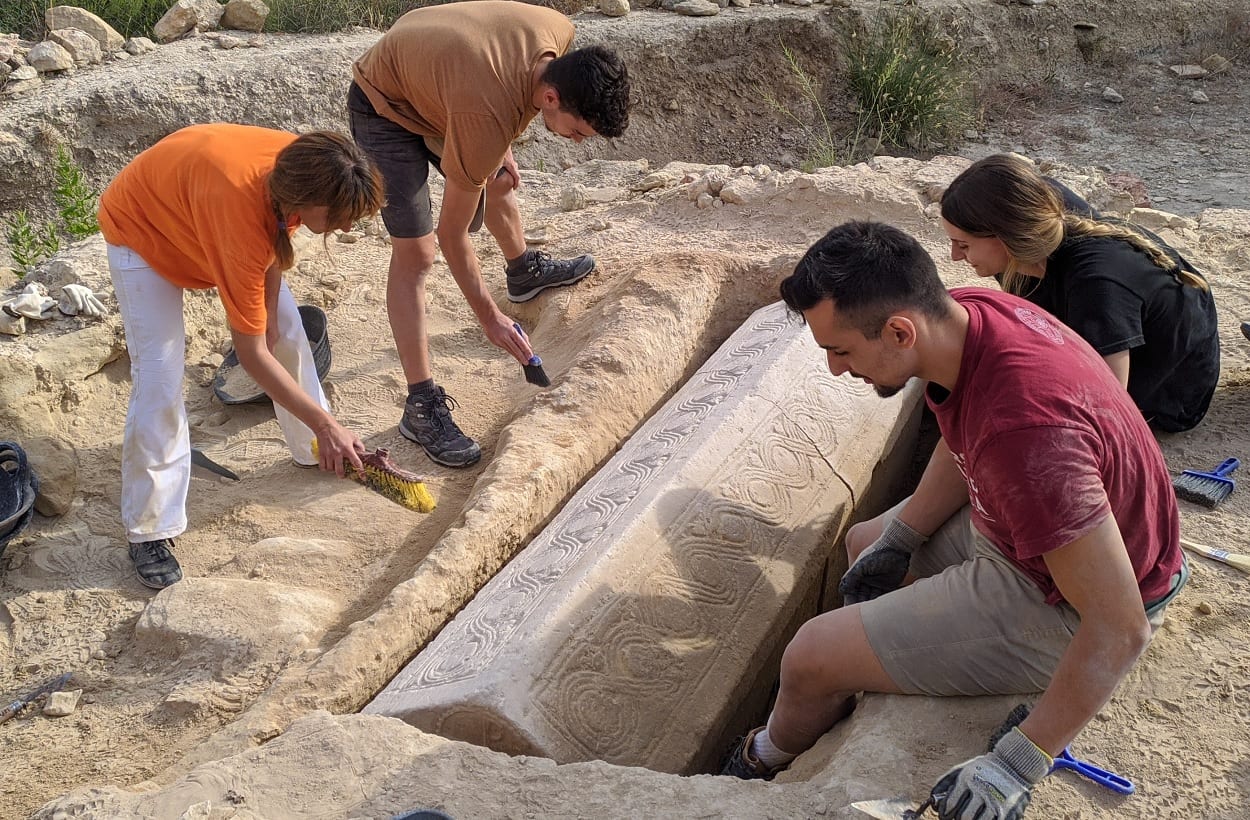Archaeologists from the University of Murcia, financed by the Mula municipal council, the Cajamurcia Foundation, and supported by CEPOAT have excavated a sarcophagus at the site of the Roman necropolis at Los Villaricos, located 5km East of the city of Mula, in Murcia, Spain.
The discovery was made during the summer season of excavations among the ruins of a previously excavated Roman villa, which was abandoned around the 5th century AD.
During the Roman period, Los Villaricos was a large-scale agricultural site, focusing on the production and storage of olive oil. In later years, elements of the villa was repurposed for Christian worship, whilst the villa’s central patio area was used as a necropolis, referred to as the ‘ necropolis ad sanctos ’.

Excavations in this area uncovered a two metre long sarcophagus, that is decorated with a swirling geometric pattern and renderings of ivy leaves, whilst a Chi Rho symbol was carved on its top which is a form of christogram by superimposing the first two (capital) letters—chi and rho (ΧΡ)—of the Greek word ΧΡΙΣΤΟΣ (Christos), in such a way that the vertical stroke of the rho intersects the centre of the chi.
It is believed that the sarcophagus dates from the 6th century AD, during a period when waves of Germanic tribes swept into the former Roman territories, amongst them the Visigoths.
Under the Visigoths, many Roman structures were abandoned or re-purposed, whilst part of the villa site was built over with a small Christian church sometime during the 5-7th century AD.
Rafael González Fernández, professor of Ancient History from the University of Murcia described the discovery as “spectacular and unexpected, which corroborates previous studies on the chronology of the necropolis”.
Header Image Credit : University of Murcia





